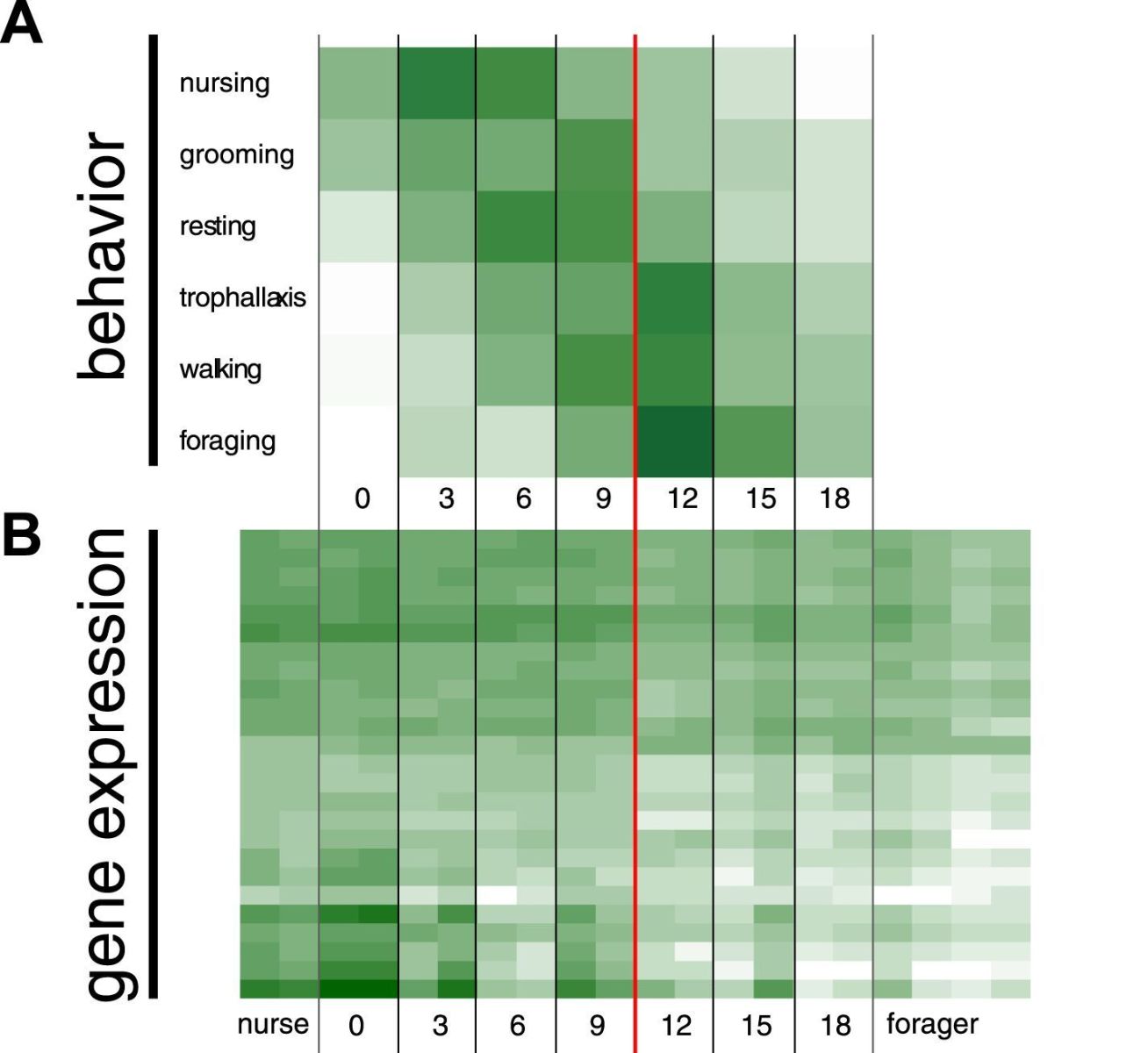The division of labour in ants
Interview with
Ants, bees, and wasps - these are social insects and they live in colonies containing thousands of individuals and everyone in those colonies knows their  role. Younger individuals tend to adopt nest-based nursing and cleaning tasks while more senior insects take on riskier foraging roles outside. To find out what role genetics plays in controlling these behaviours. Tim Linksvayer has been looking at which genes are turned on or off in younger and older ants, as well as in other social insect species.
role. Younger individuals tend to adopt nest-based nursing and cleaning tasks while more senior insects take on riskier foraging roles outside. To find out what role genetics plays in controlling these behaviours. Tim Linksvayer has been looking at which genes are turned on or off in younger and older ants, as well as in other social insect species.
Tim - We knew that a worker individual's age influenced it's behaviour. So, we looked at the patterns of gene expression. So, which genes were turned off or on in worker individuals as they aged. So, across age categories and we also looked across behaviours - specifically nursing and foraging. And then by comparing those different categories of individuals, those different samples of individuals, we could see which genes are turned off or turned on in say nurses compared to foragers or in individuals that were young versus old.
Chris - And how many genes did change when you compared the animals that are behaving inside the nest as nurses, compared to the ones then on foraging duty?
Tim - So, overall we found about 2400 genes that changed. So, 1200 genes that were upregulated in foragers, and 1200 genes that were upregulated in nurses.
Chris - Given that you've got this long list of genes now, and you can look across the spectrum of social insects. Why is this important? What can we do with this gene family that you've identified that we couldn't do based on previous studies?
Tim - I actually think the most exciting part of this research is that we asked not only what proportion of high conserved genes versus novel genes are involved in social behaviour. We asked what features of genes affect their evolutionary rate and affect how they influence social behaviour. And specifically, we looked at the regulatory context. So, it's known in other model systems that genes that are highly connected - you can imagine a gene exists within a cascade so one gene is turned on and then it affects whether another gene is turned on or another gene. And it's been found that genes that influence many other genes then have a strong effect on the traits expressed by the organism. And these genes are more conserved, whereas genes that have a lesser effect and that are loosely connected, that are not very connected, these genes are not conserved, which makes sense. Genes that are doing a lot, that are really important, are conserved. Genes that aren't doing as much are less conserved. And so, our study, we showed how this regulatory context affects the evolution of genes associated with social behaviour. As expected, we found that genes that were highly connected and that were strongly affecting the trait, we looked at the social behaviour, we looked at those genes were more conserved than genes that were less highly connected. Those genes were more rapidly evolving.
Chris - And can you go a step further and say whether or not there are more conserved genes in the nursing behaviour than the foraging behaviour, or are they equally represented between both behaviours?
Tim - Yeah. That was one interesting, and I would say, unanticipated result. We found that the genes that were upregulated in foragers, we found that those genes were more highly conserved. And keep in mind that the foragers are old, so it's like kind of amusing result where the older individuals, their behaviour is controlled by more conserved genes where the younger individuals, the nurses, their behaviour was controlled with more rapidly evolving genes.
Chris - Did that surprise you? Because it's hard to envisage how you can have one behaviour without the other and they're both equally important. So, why should one particular behaviour be more conserved at a genetic level than the other?
Tim - Yes. It is somewhat surprising. We explained it by arguing that the nurses are in fact doing more different things. So nurses, nurse individuals. So, they provide food. But they also do other things in the nest, so they clean the nest, they groom each other, they groom brood, as opposed to foragers - you could say have more programmed tasks. They're leaving the nest going to collect food, coming back, and they're also older. And actually, realistically, the age is probably very important as well. As the ants age, their metabolism is changing dramatically. And you might imagine that older individuals, there's essentially less physiological processes turned on. That could explain why it's essentially a more simple set of genes, it's more highly connected, and more conserved set of genes that's affecting behaviour in the older foragers.
- Previous What baboons can tell us
- Next HIV Pre-exposure Prophylaxis









Comments
Add a comment